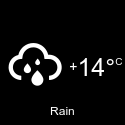(NC) With all the news about the hot housing market and interest rates, you may be thinking about your mortgage. Should you put your house on the market? Consider switching lenders to get a better deal? Should you go with a fixed or variable rate? A longer- or shorter-term mortgage?
If breaking your mortgage is factoring into your decision, make sure you understand the pros, cons and associated costs of doing so.
The cost to break your mortgage contract depends on whether it’s open or closed. An open mortgage allows you to break your contract without paying a prepayment penalty. But if you break your closed mortgage contract, you normally have to pay a penalty that can cost thousands of dollars. You may also have to pay other fees such as administration fees, appraisal fees, reinvestment fees or a mortgage discharge fee.
Here are some pros and cons of breaking a mortgage:
Pros
• You may get a lower interest rate, which you can lock in for the new term of the mortgage.
• You may be able to pay off your mortgage faster if you keep your payments the same.
Cons
• You could end up paying more in the long run because of fees and a prepayment penalty.
• You may no longer qualify for a mortgage under the current economic conditions.
By breaking your contract, you may also have to repay any cash back you received when you first signed up for it. Cash back is an optional feature where your lender gives you a percentage of your mortgage amount in cash. Read through your current mortgage contract carefully and speak with your bank about your options.
Find more tips and resources at canada.ca/money.





